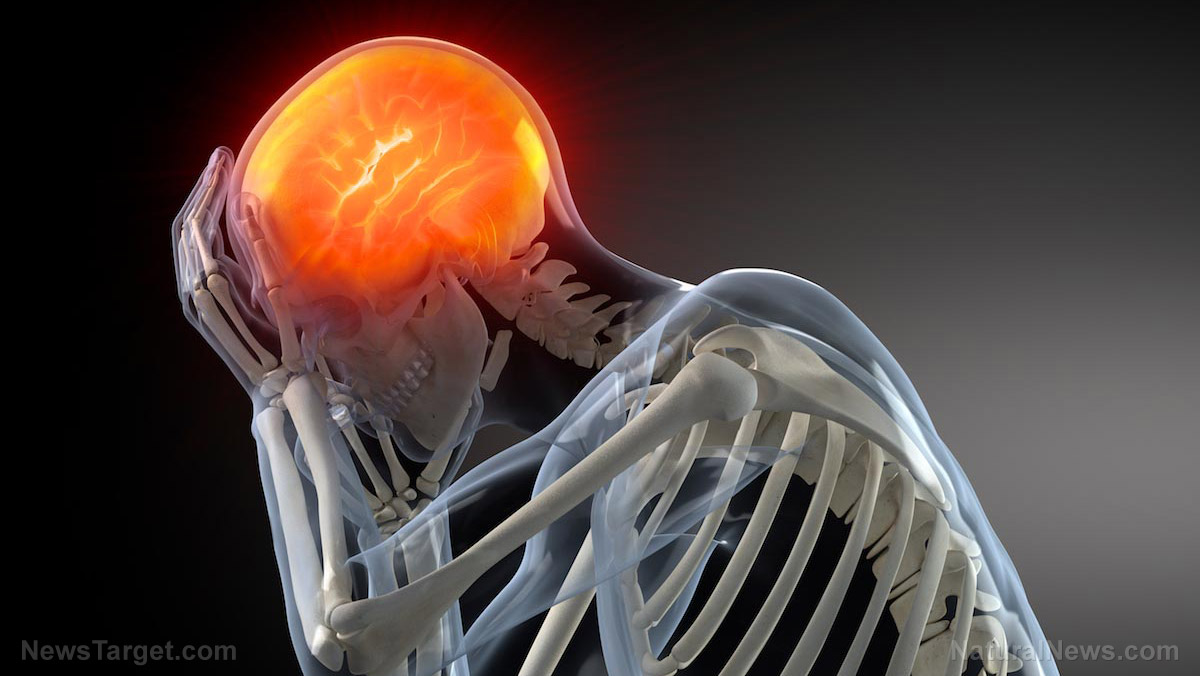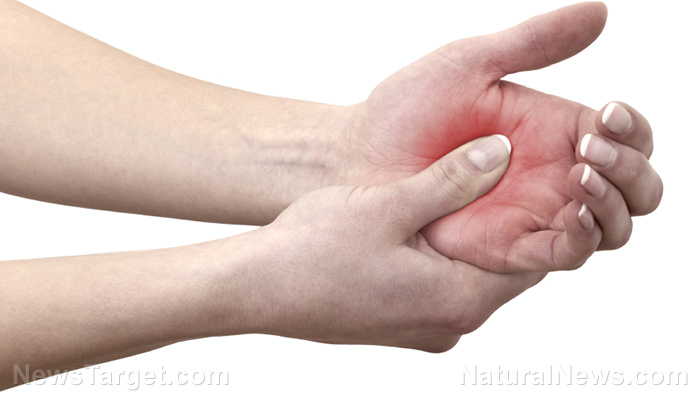Naturally prevent conditions like diabetes, heart disease and stroke with vitamin D and hormone support
08/05/2020 / By Divina Ramirez

Recent research from China has demonstrated that higher amounts of certain nutrients and hormones can slash the risk of metabolic syndrome (MetS), a cluster of conditions that heighten the risk of diabetes, heart disease and stroke.
In a recent article published in the journal Menopause, Chinese scientists found that higher amounts of calcidiol (25-hydroxyvitamin D) and estrogen corresponded to better markers of MetS, including lipid profile, blood pressure, cholesterol and blood glucose, in postmenopausal women.
Their findings underscore the potential synergistic role of calcidiol and estrogen deficiencies in the pathogenesis of MetS in postmenopausal women.
A combination of high vitamin D and estrogen levels can improve markers of MetS after menopause
MetS affects 30–60 percent of all postmenopausal women worldwide because it is tied to estrogen, the female sex hormone. Post-menopause, estrogen begins to drop and its production starts to decrease, thus resulting in a greater risk of MetS.
Menopause also leads to a greater chance of becoming obese and susceptible to heart disease. In turn, this can trigger other markers and conditions linked to MetS. The researchers note that both of these conditions also appear to be related to estrogen loss post-menopause.
In addition, numerous studies offer strong evidence that vitamin D supplementation can reduce MetS risk.
To understand the influence of both estrogen and vitamin D over MetS risk post-menopause, the researchers studied 616 postmenopausal participants aged 49–86 years from southern China. None of the participants had been taking either estrogen or vitamin D supplements.
In particular, the researchers examined calcidiol and estradiol levels in the participants. Calcidiol is a prehormone produced by an enzyme in the liver. It is also the major circulating form of vitamin D. Experts measure calcidiol levels to determine a patient’s vitamin D status.
Estradiol, on the other hand, is an estrogen steroid hormone. It is one of the four estrogens that the ovaries produce. Healthcare professionals might prescribe estradiol supplements to help ease symptoms of menopause, like hot flashes and vaginal dryness.
Upon analysis of the cross-sectional data gathered, the researchers found that higher amounts of calcidiol corresponded to a better lipid profile, blood pressure and blood glucose.
On the other hand, the researchers found that decreased amounts of estradiol corresponded to high cholesterol, high triglycerides and high blood pressure.
Taken together, these results suggest a possible synergistic role of both calcidiol and estradiol deficiencies in MetS risk among postmenopausal subjects. (Related: Are plant estrogens really the answer for postmenopausal women in need of natural hormone support?)
Vitamin D supplementation can slash MetS risk in men
MetS might affect postmenopausal women on a larger scale, but past studies confirm that MetS can affect the male population, too.
Hui-Hua Li, a professor at Dalian Medical University‘s School of Public Health in China, notes that epidemiological studies suggest high MetS risk corresponds to deficiencies in serum concentrations of vitamin D. But other studies fail to replicate this inverse relationship, Li added.
To this end, Li and his colleagues conducted a cross-sectional examination on a total of 2,585 adults aged at least 50 years. Li and his team assessed the participants’ cholesterol, blood pressure, blood glucose and serum calcidiol concentrations.
The team identified a total of 326 cases of MetS among the participants. Interestingly, the team only found significantly reduced serum calcidiol concentrations in men that had MetS. Men that did not have MetS had normal serum calcidiol concentrations.
In addition, the researchers found that men that had the highest serum calcidiol concentrations had the least risk of MetS even after adjusting for age, exercise levels and smoking and drinking habits.
Moreover, men younger than 65 years that had high serum calcidiol concentrations also had greater reductions in MetS risk than those aged at least 65 years.
Based on these results, Li and his team noted that decreased amounts of serum calcidiol concentrations are not just indicative of vitamin D deficiency but also of MetS risk in men of middle-aged categories.
Read more articles about the health benefits of vitamin D at VitaminD.news.
Sources include:
Submit a correction >>
Tagged Under:
anti-diabetes, anti-metabolic syndrome, biomedical research, estrogen, future science, heart health, hormones, men's health, micronutrients, nutrients, nutrition, vitamin D, women's health
This article may contain statements that reflect the opinion of the author
RECENT NEWS & ARTICLES
COPYRIGHT © 2017 HEALING NEWS





















